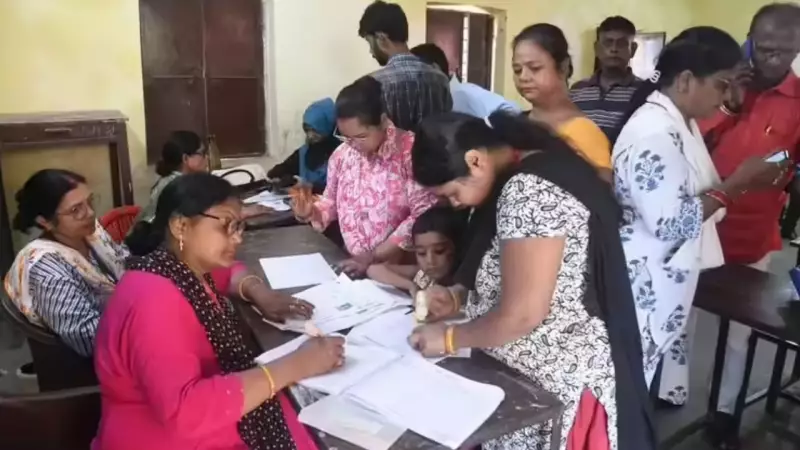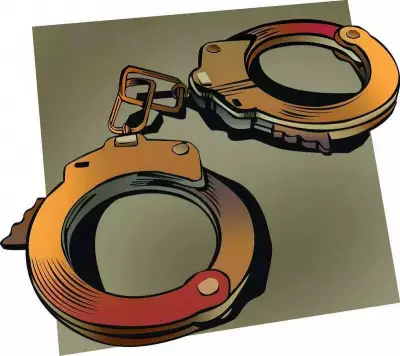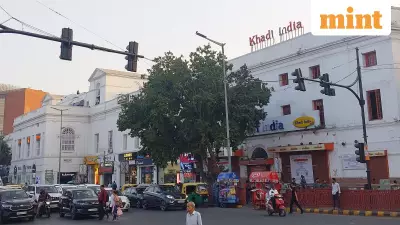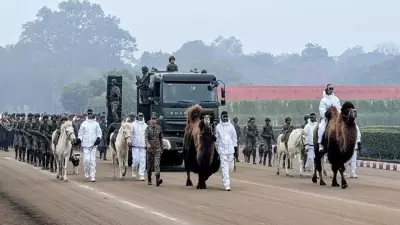
Political Storm Over Bengal's Voter List Cleanup
West Bengal has become the epicenter of a major political confrontation as the Election Commission's Special Intensive Revision (SIR) of electoral rolls enters its final phase. The exercise, aimed at cleaning up voter lists ahead of next year's assembly polls, has drawn sharp reactions from all political quarters, with the ruling TMC and opposition BJP locked in a bitter war of words.
BJP state president Samik Bhattacharya offered strong reassurance to citizens, stating, "As long as BJP is there, no Indian Hindu and Indian Muslim have to fear about their name being stripped off from the voter list." This confident declaration comes amid growing concerns about potential voter exclusion during the revision process.
Opposition's 'Game' Allegations and Legal Challenges
The INDIA alliance has launched scathing attacks on the SIR process, with Samajwadi Party chief Akhilesh Yadav leading the charge. In a sharply worded post on X, Yadav claimed the opposition has understood Election Commission's 'khel' with SIR and vowed to prevent its repetition in states like Tamil Nadu, West Bengal and Uttar Pradesh.
Bhattacharya dismissed these allegations as the "cry of the losers" when questioned about the 'Vote Chori' campaign. Meanwhile, the TMC has mounted legal challenges against SIR in the Supreme Court, with the ruling party in Bengal remaining on high alert over the roll clean-up exercise.
The enumeration process has reached its final stages, with almost all forms distributed to voters. Approximately 80,000 Block Level Officers (BLOs) are racing against time to collect forms from over 7.6 crore voters and upload them to the EC app by December 4. The draft rolls are scheduled for publication on December 9, setting the stage for the next phase of this political battle.
Ground Reality: Document Woes and Migrant Concerns
The SIR requires voters to provide details as they appeared in the 2002 electoral roll. Those not on that roll must provide similar details for an immediate relative who featured in it, or establish eligibility using one of eleven document types specified by the Election Commission.
However, this requirement has created significant anxiety among vulnerable populations. Domestic workers commuting from neighbouring South 24 Parganas express genuine concerns: "We are poor. From where will we get the documents? Our names weren't there in 2002." Many families, including their forefathers, have never stepped outside Bengal, let alone migrated from another country.
TMC spokesperson Dr Riju Datta highlights an even more serious concern: Nearly half the population of Matuas and Rajbanshis, two of the largest Scheduled Caste communities in Bengal, lack proper paperwork and risk exclusion from the December 9 rolls. The party has dubbed SIR a "backdoor NRC" and established 'Banglar vote raksha' camps across all blocks to assist voters with form completion.
Bengal has approximately 22 lakh migrants working in other states, and TMC is making special efforts to ensure these workers and their families complete enumeration forms. MP and Chairman of Migrant Workers Welfare Board Samirul Islam confirms the party's focused outreach to this demographic.
Aadhaar Verification and Political Counterclaims
Another major flashpoint is the EC's decision to use Aadhaar data to identify deceased voters. Bengal chief electoral officer Manoj Agarwal has revealed that UIDAI informed them about records of 32-34 lakh deceased individuals with Aadhaar, plus another 13-14 lakh dead people without Aadhaar.
TMC has strongly objected to this cross-verification. Riju Dutta points out the contradiction in UIDAI's statements, noting the authority previously told Parliament it doesn't maintain state-wise, year-wise or reason-wise data on Aadhaar deactivation. "So was the UIDAI telling the truth then or is it factually correct now? That is the core question," he asserts.
Meanwhile, leader of the opposition Suvendu Adhikari has submitted a list of 13 lakh names that BJP believes should be removed from rolls. He repeatedly claims SIR will weed out 'Muslim infiltrators' from Bangladesh, alleging they form a dedicated vote bank for the ruling party.
TMC counters this by questioning why the Election Commission hasn't provided religion-wise breakdown of names deleted during SIR in neighboring states. In Bihar, the voter count reduced from 7.89 crore to 7.42 crore after SIR completion.
December 9: The Day of Reckoning
As the December 9 deadline for draft rolls approaches, political activities have intensified across Bengal. TMC has announced that Abhishek Banerjee will undertake a whirlwind statewide tour from November 25 to energize party cadres for the final stretch.
The Bengal BJP remains unfazed by potential fallout. Samik Bhattacharya characterizes Mamata Banerjee's focus on SIR as "diversionary tactics" to deflect attention from investigations by ED, CBI and other probe agencies targeting her party.
The Supreme Court's recent observation questioning why Tamil Nadu and West Bengal oppose SIR has provided additional ammunition to BJP. Bhattacharya challenges TMC to approach the Supreme Court if they have genuine grievances.
For the Election Commission, Bihar's experience serves as validation of the SIR model. Chief Election Commissioner Gyanesh Kumar claims zero appeals were filed against final voter rolls in Bihar after polls were completed following SIR.
In Bengal, officials maintain the revision is proceeding smoothly. However, the real test will come when draft rolls are published on December 9. The competing narratives of TMC's 'Silent Invisible Rigging', BJP's confidence in the process, and EC's faith in its template will all confront the stark reality of who finds their name on the list and who doesn't, just before crucial assembly elections that could determine the state's political future.





